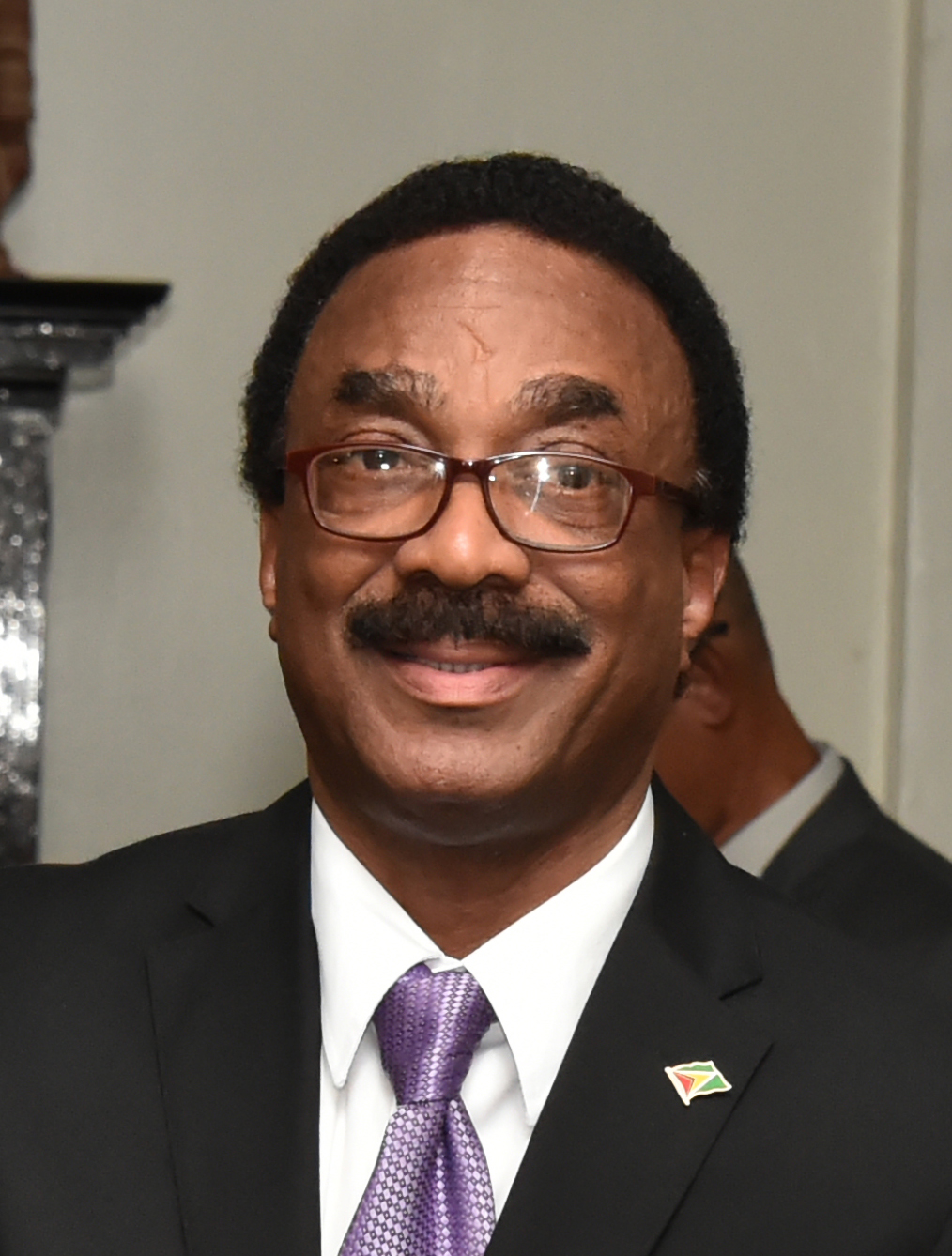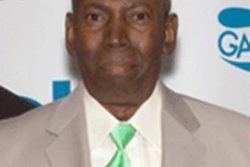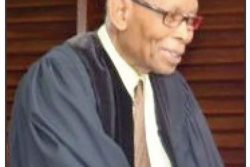Attorney General (AG) Basil Williams has submitted to the Caribbean Court of Justice (CCJ) that it should order government to return to the National Assembly to pass a resolution to extend the time to hold elections and if this is unsuccessful, that the President dissolve the House and fix a date for the polls.
In the court-mandated submission made on July 1 as the CCJ prepares to Friday issue orders based on its findings that the December 21, 2018 vote of no-confidence against the APNU+AFC administration was validly passed, thereby requiring elections, and that the Chairman of the Guyana Elections Commission (GECOM) was unlawfully appointed, the government’s legal team also argued for house-to-house registration.
The team, comprising AG Williams, Senior Counsel Eamon Courtenay and Solicitor General Nigel Hawke, advanced a number of arguments as to why the court could not issue coercive orders such as setting a date for elections or that parliament be dissolved, arguing essentially that these are political matters and outside the jurisdiction of the court. The orders to be issued therefore, it was argued, should be “quite limited.”
Among the orders recommended was that “The Government should convene the National Assembly to have a resolution passed in order that the time be extended for the holding of an election within the earliest time as indicated after the President has consulted with the Guyana Elections Commission.”
It was also submitted that if, for any reason, the National Assembly does not pass the resolution or it does not garner the requisite majority for an extension, the President, after consultation with GECOM, shall dissolve the National Assembly and General and Regional Elections be held on a date to be fixed by the President under Articles 70(2) and 61 respectively.
Article 70(2) states that “The President may at any time by proclamation dissolve Parliament.”
Article 61 provides that “An election of members of the National Assembly under article 60(2) shall be held on such day within three months after every dissolution of Parliament as the President shall appoint by proclamation: Provided that no balloting commenced during the period of three months aforesaid, performed before the day so appointed and pursuant to which the votes of any person registered as electors are cast at the election, shall be deemed contrary to the requirements of this article by reason only that such balloting has been so performed.”
Further, the government’s legal team argued for an order to be made that the registration of persons for the purpose of ascertaining who is qualified to be an elector is by ‘house to house’ visits as provided for under section 3(1) of the Elections Law (Amendment) Act of 2000. It was also submitted that an order be made that General and Regional Elections be held on the National Register of Registrants/Central Regis-ter under the National Registration Act “which Register is to be prepared by ‘house to house visits’ pursuant to sections 2 and 3 of the National Registration Act as amended by the National Registration (Amendment) Act No 31 of 2007.”
An order that pursuant to Article 106(7), the Government, including the President, Prime Minister, Ministers and Cabinet shall remain in office until a President is sworn in after elections have been held, was also sought.
Heresy
The team had argued prior that the notion that Article 106(6) requires the resignation of the President, the Prime Minister, the Ministers and the Cabinet forthwith, as contended for by the Appellants, “and leave Guyana without anyone capable of lawfully exercising executive authority, is contrary to Article 106(7) and the Constitution as a whole. It is also constitutional heresy and a prescription for anarchy.”
Article 106 (6) of the constitution states, “The Cabinet including the President shall resign if the Government is defeated by the vote of a majority of all the elected members of the National Assembly on a vote of confidence.”
Article 106 (7) adds, “Notwithstanding its defeat, the Government shall remain in office and shall hold an election within three months, or such longer period as the National Assembly shall by resolution supported by not less than two-thirds of the votes of all the elected members of the National Assembly determine, and shall resign after the President takes the oath of office following the election.”
It was submitted that the CCJ has no jurisdiction to extend the period for elections to be held, or to set the date for elections or dissolve parliament.
Observing that more than three months have elapsed since the passage of the no-confidence motion, the AG argued that it is now for the National Assembly to decide if it will extend the period for the elections to take place.
“There are at least two fundamental principles of constitutional law that deny this Court the power to extend the period for the elections to be held. First, Article 106(7) expressly gives to the National Assembly the exclusive power to extend the period. Extending the period for holding elections is not a legal question. It is self-evidently a political question for determination by the Executive and the Legislature. If, in this case, the Court were to seek to exercise that power, it would be violating the separation of powers doctrine,” he argued.
“Secondly, if this Court were to attempt to extend the period before the National Assembly has even considered the issue, the Court would be presuming, without evidence, that the National Assembly will not perform its constitutional function. To act now would be a clear violation of the presumption of regularity. Consistent with its established practice, the Court should presume that if the Government concludes that the public interest requires the Assembly to meet to consider the extension, it will notify the Speaker so that the National Assembly can be convened,” he added.
Williams submitted that the presumption of regularity and the separation of powers doctrine dictate that the court should afford the National Assembly an opportunity to exercise its constitutional function.
“…if this Court orders that pursuant to section 106(7) elections must be held in three months, it will clearly be obstructing Parliament from exercising its constitutional power to extend the time if it becomes necessary to do so. The Court would be acting prematurely, and setting itself up for a clash with the Parliament,” he declared.
No jurisdiction
In arguing that the court has no jurisdiction to set the date for elections, the AG indicated that setting a date for an election is a quintessentially political question, describing it as one of the most powerful political tools held by a president or prime minister in most constitutional democracies without fixed dates for elections.
“Before setting a date for elections this Court must ask and answer the following question: What is the best date for general and regional elections to be held in Guyana? Frankly, that question and the answer to it are political in nature and within the exclusive right and privilege of the President of Guyana,” he said.
Similarly, the AG said, it falls exclusively to the President to decide when to dissolve Parliament. “It is noteworthy that Article 106 does not provide for the dissolution of the National Assembly by operation of law if a government is defeated on a motion of confidence. It follows that notwithstanding such a defeat, the power of dissolution remains constitutionally vested with the President. There is no evidence before this Court that proves or suggests that the President will fail to discharge his constitutional duty. Consistent with the settled practice of this Court, it is to be presumed that the President will comply with the law,” he submitted.
Williams argued that the court should remain above politics. He said that the political objective of the Leader of the Opposition was to bring about elections if he succeeded with the no-confidence motion. Noting that the CCJ has settled the legal dispute as to the validity of the motion, he submitted that it cannot, and should not, provide the political solution that the Leader of the Opposition desires.
Accepting that the motion has been validly passed and elections must be held, Williams argued that elections can only be lawfully held if they are credible which, he said, requires the completion of the Official List of Electors by way of house to house visits.
According to the AG, it is for the Leader of the Opposition to return to parliament to have the period for holding elections extended. He submitted that if parliament does not discharge its constitutional function pursuant to Article 106(7), “then as this Court has found that the Government has lost the confidence of the National Assembly, it would fall to the President, as supreme executive authority, to resolve the constitutional imbroglio. After consultation with a duly constituted GECOM, he would dissolve Parliament and set a date for elections”
“We emphasise, however, that consideration of such issues is highly speculative and premature, and certainly fall outside the jurisdiction of this honourable Court,” said the AG.
Meantime, it was also argued that the elections must be credible. Williams submitted that there is limited evidence before the court on the actual readiness of GECOM to hold elections. In noting that the CCJ has ruled that the appointment of Justice James Patterson as Chairman of GECOM was unconstitutional, he said that this is a matter of consequential legal significance because GECOM is not properly constituted without a chairman.
“…unless and until a Chairman of GECOM is appointed GECOM is constitutionally incapable of lawfully directing, supervising and administering the elections that are required to be held,” the AG submitted.
He also noted that there is no evidence before the court that the officers and employees of GECOM are not discharging their functions in order to ready the electoral apparatus for elections. “On the contrary, the evidence strongly suggests that they are at work and that time is required for the work to be completed,” he said, while adding that the process must be completed by house to house visits.
Williams further argued that there is no basis for a coercive order. “The Appellants seek coercive orders which are contrary to the basic legal principles for granting orders of mandamus. Courts have been very hesitant to issue orders of mandamus, and have exercised such jurisdiction only where a litigant has established that a public authority has breached fundamental rights or failed to comply with a duty,” he submitted.
He noted that while the no-confidence motion was passed on 21 December 2018, it was not until 18 June 2019 that the CCJ declared that the no-confidence motion was properly carried and that Article 106 of the Constitution was applicable.
“The President’s duties flowing from this Court’s decision with respect to the need for an election under Article 106 have therefore just recently been finally clarified. There is no evidence that the President has failed to comply with his duties. Consequently, there is no basis to order that the President act on his constitutional duty to set a date for elections or to dissolve Parliament. Further, the Attorney General frontally raises the question whether the Courts of Guyana could make such an order in light of fundamental constitutional principles including separation of powers, matters on which there has simply not been full argument before this Court,” he submitted.










